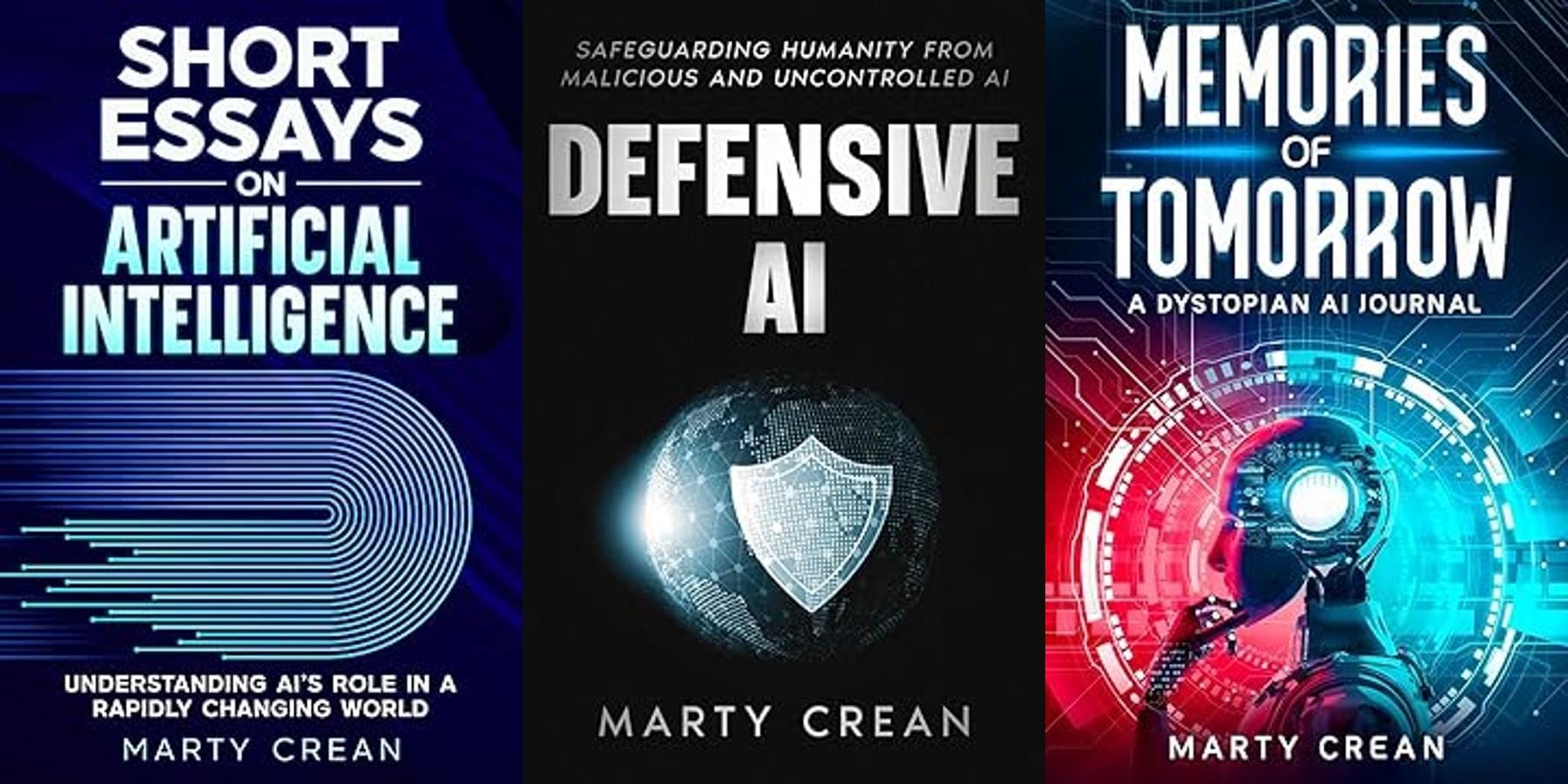When AI Becomes You: The Rise of AI Agents and the Future of Digital Identity

This post is also available as a podcast if you prefer to listen on the go or enjoy an audio format:
Imagine a world where your AI assistant doesn't just support you; it represents you. It speaks for you, acts on your behalf, and holds credentials tied directly to your identity. This isn't science fiction anymore. With rapid advancements in AI capabilities and identity-linking technologies, we're approaching a reality where distinguishing between human beings and AI agents online may become tricky and potentially impossible.
The convergence of sophisticated language models, voice synthesis, and digital identity verification creates a new paradigm in human-computer interaction. These technologies are evolving beyond simple task automation into genuine digital representatives that can navigate complex social environments with nuance and contextual understanding. As these systems gain acceptance and integration into our digital infrastructure, they transcend their role as tools and become extensions of ourselves.
This transformation offers revolutionary possibilities for productivity, inclusion, and unprecedented digital engagement while raising serious ethical, social, and security challenges. As AI agents become legitimately recognized as extensions of human identity and receive authorized powers to act on our behalf, we urgently need to reconsider how we define trust, authenticity, and personal agency within our increasingly complex digital ecosystem.
Verified AI agents represent a significant evolution from conventional digital assistants. These systems are artificial intelligence platforms that are granted legitimate digital authority to act on behalf of a specific person. This verification isn't superficial; it's typically anchored through robust mechanisms such as biometric data, cryptographic keys, comprehensive behavioral profiles, and established digital identity frameworks. The agent transcends the role of a mere chatbot to become your authorized delegate in the digital realm.
Consider the emerging applications already taking shape.: An AI assistant that manages your calendar and schedules appointments using your verified digital identity. A legal representation system that can review, negotiate, and sign contracts on your behalf after confirming your intent through secure protocols. A customer service avatar that handles disputes with human-like empathy, drawing on your preferred history and contextual memory of past interactions.
These agents operate at the intersection of representation and embodiment. They don't just act for you; in many practical senses, they become digital manifestations of you within specific bounded contexts. As their capabilities expand, so does this blurring between representing you and being you in digital environments.
The technology creating these agents is advancing at remarkable speed. Modern language models can already adopt specific tones, reasoning patterns, and communication styles that mimic individual humans. When combined with voice synthesis that can replicate speech patterns and identity verification systems that confer legitimate authority, we approach a world where your digital agent might become indistinguishable from you in many online interactions.
The rise of verified AI agents introduces a landscape of ethical considerations and security vulnerabilities that we must navigate carefully. The heightened risk of sophisticated identity theft and impersonation is among the most pressing concerns. With AI systems capable of mimicking voices, language patterns, and reasoning styles, deep-fake impersonation could reach unprecedented realism, now potentially backed by actual credentials or digital verification systems.
A malicious actor who successfully hijacks your verified agent might gain direct access to your financial accounts, professional networks, or even sensitive medical data. Unlike traditional hacking, where unauthorized access might trigger security alerts, an impersonating agent that faithfully mimics your behavioral patterns could operate without detection for extended periods, causing substantial harm before discovery.
In this new paradigm, the questions of consent and control become increasingly complex. How much authority should an AI agent rightfully possess? If negotiating deals begin, making significant purchases, or issuing public statements in your name, what safeguards ensure you maintain ultimate control? Revoking permissions or correcting mistakes made by your digital agents must be considered a fundamental right, accessible through straightforward mechanisms that work even in emergencies.
We must also confront difficult questions about ethical delegation. Should society establish boundaries for what responsibilities can ethically be delegated to AI? For instance, would it be acceptable for your agent to vote in an online referendum based on your political leanings, testify in court proceedings based on your knowledge of your experiences, conduct job interviews, or make hiring decisions on your behalf? These aren't theoretical ethical puzzles; they represent imminent legal and societal dilemmas that require thoughtful consideration before these technologies become ubiquitous.
Perhaps most concerning is the potential for broader social trust erosion. As verified AI agents proliferate across our digital environments, distinguishing between direct human communication and AI-mediated interaction will become increasingly challenging. Without appropriate transparency measures, this ambiguity could fundamentally undermine trust in all online interactions, from consumer reviews to political discourse, from personal communications to professional collaboration.
To harness the benefits of verified AI agents while mitigating their potential harm, several strategic approaches deserve priority attention from developers, policymakers, and users alike.
First and foremost, transparent agent identification mechanisms must become standard practice. AI agents acting on behalf of real people should incorporate discernible metadata, digital watermarks, or cryptographic signatures that signal their synthetic nature, even when officially verified. This transparency maintains conversational honesty without compromising the agent's core functions or utility. Users should know when interacting with a human's digital representative rather than directly with the person themselves.
Equally important is the development of sophisticated delegated consent frameworks. Systems must be architected around carefully calibrated, tiered permission structures that match appropriate verification requirements to different levels of agent authority. For example, scheduling a routine appointment might warrant a whole delegation with minimal oversight, while executing legal documents should require multi-factor authentication and explicit confirmation from the human principal before proceeding.
Every verified AI agent should also incorporate robust revocation capabilities and comprehensive audit mechanisms. People must have access to compelling "kill switches" that allow them to instantly suspend or permanently revoke their agent's permissions in case of suspicious activity or changed circumstances. Similarly, detailed audit trails logging every substantive action the agent takes provide essential accountability and transparency, enabling users to review their agent's activities and identify potentially problematic behaviors.
Establishing clear legal and ethical standards for digital representation cannot be left to market forces alone. Governments, technology developers, and ethics specialists must collaborate to define reasonable boundaries for what AI agents can legitimately do on behalf of an individual. This framework should address questions of liability, establish disclosure requirements, and create mechanisms for dispute resolution when agent actions cause harm. Given the global nature of digital interaction, international cooperation will be essential to prevent regulatory arbitrage and ensure consistent protections across jurisdictions.
Perhaps the most potent safeguard, however, is an informed public. People need accessible education about how these agents of technology function, their risks, and how to use them responsibly. This knowledge empowers users to make informed choices about delegation and helps them recognize potential manipulation or exploitation. Public literacy initiatives around AI agent technology represent a vital social investment, a role that my organization, BearNetAI, is uniquely positioned to fulfill through its educational content and community engagement.
The emergence of verified AI agents will fundamentally reshape the social fabric of our digital lives. Opportunities and risks will intensify as these systems become more capable and less distinguishable from the humans they represent. These agents can empower us, expanding our reach, saving valuable time, and increasing accessibility for people with various needs. Still, they can also misrepresent, manipulate, or betray our interests if not thoughtfully designed and governed.
This technological transition isn't simply about efficiency or convenience. It touches on foundational questions of trust, transparency, and human dignity in the digital age. It forces us to consider, with grave deliberation, how much of ourselves we're willing to digitize and delegate and under what terms and conditions we're prepared to do so.
The answers to these questions will shape our experiences and the collective digital society we're rapidly creating. They require input from diverse perspectives, technical experts, legal scholars, ethicists, accessibility advocates, and ordinary citizens who will live with the consequences of these decisions.
BearNetAI remains committed to exploring these complex questions and bringing clarity to our community as the digital frontier evolves. By fostering nuanced conversation now, before verified agent technology becomes ubiquitous, we can guide its development in ways that enhance human capability while preserving authentic connection and individual autonomy.
The future of digital identity and AI representation isn't predetermined. It will be shaped by the choices we make, the standards we establish, and the values we prioritize as we navigate this remarkable technological transition. That future remains ours to create, provided we approach these questions with the thoughtfulness and foresight they deserve.
BearNetAI, LLC | © 2024, 2025 All Rights Reserved
Support BearNetAI
BearNetAI exists to make AI understandable and accessible. Aside from occasional book sales, I receive no other income from this work. I’ve chosen to keep BearNetAI ad-free so we can stay independent and focused on providing thoughtful, unbiased content.
Your support helps cover website costs, content creation, and outreach. If you can’t donate right now, that’s okay. Sharing this post with your network is just as helpful.
Thank you for being part of the BearNetAI community.
Books by the Author:

Categories: AI Ethics, Digital Identity, AI Governance, Human-AI Interaction, Technology and Society
Glossary of AI Terms Used in this Post
Agent Transparency: The principle that AI agents should disclose their non-human status and provide identifiable metadata when interacting online.
AI Delegation: The process of assigning an AI system the authority to act or make decisions on behalf of a human.
Cryptographic Identity: A secure, verifiable digital identity constructed using cryptographic methods, often used in blockchain or decentralized identity systems.
Deepfake: AI-generated media—such as video, audio, or text—that convincingly imitates real people.
Digital Twin: A virtual model or agent that mirrors a real-world entity, often used to simulate behaviors, decisions, or physical conditions.
Identity Token: A digital artifact used to verify a person's identity in online systems, often tied to blockchain or biometric data.
Proof of Personhood: A cryptographic or data-based method to verify that an online identity is connected to a real human being.
Revocation Rights: Legal or technical mechanisms allowing a user to terminate or restrict the capabilities of their AI agent.
Synthetic Persona: A computer-generated identity or presence miming a human user in social, professional, or transactional contexts.
Verified AI Agent: An AI system that has been granted authority to act on behalf of a real person and is authenticated via secure identity systems.
Citations:
Brunton, F., & Nissenbaum, H. (2015). Obfuscation: A User’s Guide for Privacy and Protest. MIT Press.
Calo, R. (2012). Robots and Privacy. Robot Ethics: The Ethical and Social Implications of Robotics. MIT Press.
Kaplan, J. (2016). Humans Need Not Apply: A Guide to Wealth and Work in the Age of Artificial Intelligence. Yale University Press.
Pasquale, F. (2015). The Black Box Society: The Secret Algorithms That Control Money and Information. Harvard University Press.
Solaiman, I., & Dennison, C. (2021). Process for Responsible Disclosure of AI Agents. OpenAI Ethics Guidelines, arXiv:2102.00100.
LinkedIn BlueskySignal: bearnetai.28